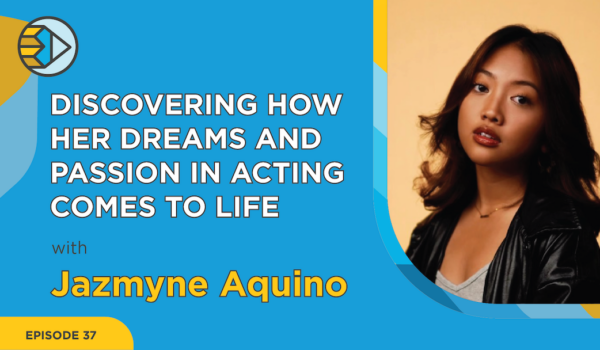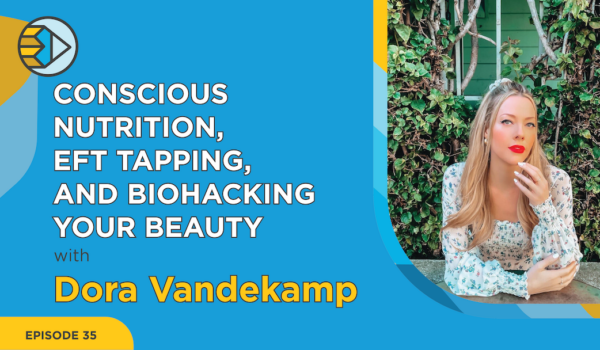
EP 32: English Grammar 101: Two Commonly Confused Words (Very & Really)
This week we continue our weekly mini series. We are investigating the foundations of English grammar, starting with the basics and moving on from there. This week we discuss two commonly confused words in the English language: very and really. Join Cath Anne as she wraps up our short series on the foundations of English grammar.
Looking for study tips, help with essay writing, or advice on how to be a better student? Welcome to The Homework Help Show, a weekly show where we teach, assist, and offer valuable insights for student life. From study hacks to writing tips, discussions about student mental health to step-by-step guides on academic writing and how to write a resume, we’ve got you covered. Want your questions answered? Write them below or join the conversation on social media using the hashtag #askHHG
TRANSCRIPT:
Cath Anne: [00:00:06] I’m Cath Anne and welcome back to our channel. Here on The Homework Help Show we provide you with valuable content for your academic and student life. Just a quick reminder before we jump into the content this week. Every Monday at 7:00p.m. EST, you can join me on Instagram. I’ll be doing a quick chat and a Live video just to check with you guys and see how your classes are going and to remind you of our upcoming videos. I love to chat with you guys so make sure you join us. Add us on Instagram and join me Live every Monday at 7:00 pm EST.
Cath Anne: [00:00:45] This week we are returning to our Grammar 101 series for the final episode and we’re going to talk about the difference between two words that often get confused in the English language which are ‘really’ and ‘very’. Sometimes these words can get confused and can be difficult to know when to use ‘really’ and when to use ‘very’. Today I’m going to give you a quick explanation that will hopefully help clarify things for you and help you to know when to use ‘really’ and when to use ‘very’.
Cath Anne: [00:01:19] Though this might seem really basic, these tips can be helpful for anyone even if you are native English speaker. It always helps to go back to the foundation of the language and re-learn a few of these skills. So, if you’re interested please follow along and join me in our discussion.
Cath Anne: [00:01:41] OK let’s get started. So, first there is one thing in common that both of these words do. ‘Really’ and ‘very’ are both used to add intensity or emphasis to what you are saying. Both of them have the same effect. ‘Really’ and ‘very’ they both have the same effect of emphasizing words.
Cath Anne: [00:02:03] So, let’s begin with ‘really’. ‘Really’ is used to modify, to add emphasis, to change, verbs, adjectives and adverbs. So, it works with all three of these types of words.
Cath Anne: [00:02:19] We can also use it. So, yeah, we can use modify verbs, we can use it to modify adjectives and adverbs. Now, let’s move into a couple of examples. For example, “The kitten is really silly”. In this sentence, ‘silly’ is an adjective; we use ‘really’ before the adjective to modify. So, this gives emphasis to the word ‘silly’. “He runs really quickly”, is another sentence. The word ‘quickly’ is actually adverb and we add ‘really’ to add emphasis to quickly he runs. Here I have written, “You’re really funny”. ‘Funny’ is being modified here, and that is an adjective and we are using the word ‘really’ to modify it and emphasize how funny that person is. It must be that person that’s telling you all those silly jokes all the time.
Cath Anne: [00:03:22] We can also say “I’m really tired.” ‘Tired’ here is an adjective. So, we use the word ‘really’ to emphasize how tired I am. Maybe you’re feeling this at the mid-point in the semester when tests and essays are ramping up. We can use ‘really’ to modify verbs and we can also use it to modify adjectives and adverbs as we have discussed.
Cath Anne: [00:03:49] Now we will talk a little bit about how we use ‘really’ to modify verbs in just a little bit. Move over to the sentences. We just gave you some examples of where it modifies adjectives and adverbs so far but we will talk about the verbs in a little bit.
Cath Anne: [00:04:06] So, moving on to ‘very’. ‘Very’ is a bit different. It is used to modify adjectives and adverbs only. You can not use the word ‘very’ to modify verbs.
Cath Anne: [00:04:17] Generally, we use ‘very’ in negative sentences, So that can give me a sense of when to use ‘very’ if you’re confused between the two words. If it is a negative sentence, generally you’ll use ‘very’ because it just allows the sentence to flow a little bit better. We will talk a little bit more about that. Let’s take a look at a few examples.
Cath Anne: [00:04:43] Here we have, “The sandwich is very good.” ‘Good’ is an adjective and we are using ‘very’ to modify the word ‘good’. “You’re not very funny.” Maybe this is the person that tells you all the puns all the time. ‘Very’ is modifying the word ‘funny’ which is an adjective again in a sentence. And also you’re not is negative sentence. It is a negative statement.
Cath Anne: [00:05:11] So, you could say “not really funny”. “You’re not really funny”.
Cath Anne: [00:05:16] But, this just doesn’t have the same flow to it doesn’t sound as natural as “You’re not very funny.” So, here we would use the word ‘very’.
Cath Anne: [00:05:28] “He doesn’t run very quickly.” Here we have another negative sentence. Adding ‘very’ in this sentence adds emphasis to how not quickly he runs. So, again we are using it in a negative sentence. “They’re very rich.” “They are very rich.” You could say they’re really rich. But, as you can see it doesn’t have the same ring to it. So, we prefer to use the word ‘very’, but in this sentence you could use ‘very’ or ‘really’.
Cath Anne: [00:06:01] OK. Let’s take a look at a few example sentences. In particular I want point out times where we will be using the word ‘really’ to modify verbs and we will discuss a little bit more about using ‘very’ in a negative sentence.
Cath Anne: [00:06:18] Let’s take a look. So, in our first example sentence we have, “They *blank* love pizza.” Here we are modifying the word ‘love’ and love is a – – – verb. So we will use the word ‘really’. “They really love pizza.” “The restaurant wasn’t *blank* good.” So, here we have the word ‘wasn’t’ which implies a negative sentence. So, we have the word, ‘wasn’t’ which implies a negative sentence. So, “The restaurant wasn’t very good.”.
Cath Anne: [00:07:15] Then we have “It is *blank* rainy today.” Now, in this sentence we could use the word ‘really’ or the word ‘very’. They both work in this sentence. “It is really rainy today.” ‘Rainy’ is an adverb so we can use either one of these.
Cath Anne: [00:07:43] “He *blank* eats a lot. Here we are modifying the word ‘eats’, which is a verb, so here would use the word ‘really’. “He really eats a lot.” As you can see if we tried to use the word ‘very’ it wouldn’t make sense. “He very eats a lot” is not a correct sentence. So we will prefer to use the word ‘really’.
Cath Anne: [00:08:19] “I *blank* hope we can catch up soon.” Here we are modifying the word ‘hope’ which is a verb. So we use the word ‘really’. “I really hope we can catch up soon.” Finally, we have, “He doesn’t eat *blank* much.” ‘Doesn’t’, again we have a negative word. So, here we will use the word ‘very’.
Cath Anne: [00:08:57] Ok. That’s a quick overview of when to use ‘really’ and when to use ‘very’. Remember, can you can use ‘really’ in front of a verb and if you are making a negative statement use the word ‘very’ instead of ‘really’. It just makes the sentence flow and sound a bit more natural.
Cath Anne: [00:09:22] OK. So, I hope that was a benefit to you. If you do have any questions please leave them in the comments below. Feel free to DM us on Instagram, or anywhere that you find us. Next week we will be discussing study methods and how you can incorporate that into your study routine. So, I’m really excited for that one. If you did like this video and you want to see more of our content, make sure that you click like, give us a thumbs up and make sure to subscribe to our channel. We also have many other platforms where we are linked. We are doing podcasts, we are doing the video here on YouTube and we are also on many other platforms like Medium we write lots of blogs. So, all of that social media information is in the description box below for your viewing pleasure. You’re free to connect anywhere on those platforms. Yeah, so it would really help us if you guys would like and subscribe to our channel to keep in the loop. That’s it for me this week guys. I hope to talk to you soon. I hope this video was of benefit. Take care.
Share:

